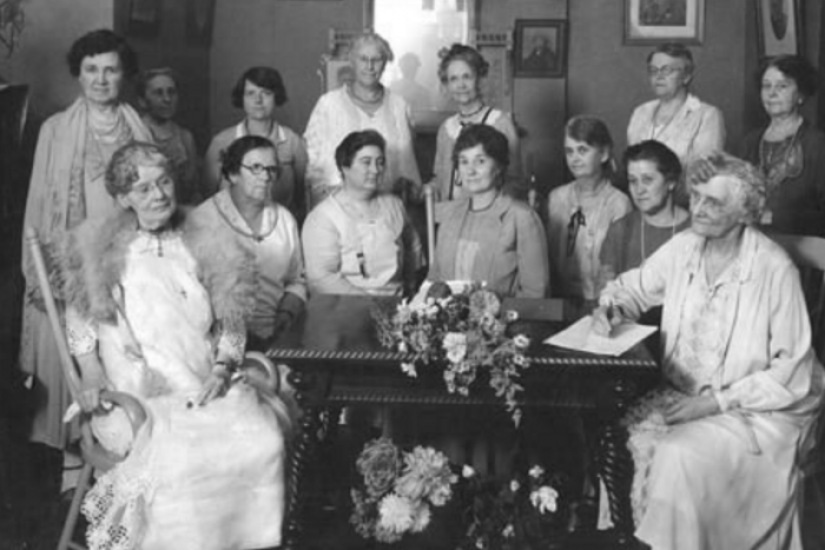Temperance societies formed throughout the first half of the 19th century, but the movement didn’t belong to women until the founding, in 1874, of the Women’s Christian Temperance Union (WCTU). The organization fought not only for temperance but held progressive positions on a broad range of other social issues, including prison reform, stricter anti-rape laws, municipal sanitation, free lunches, and labor rights. They also sought to curb so-called “vices” like prostitution. Their main focus, particularly at first, however, was to curtail the suffering of families at the mercy of alcohol.
There was something specifically female about this complaint. At a time when they couldn’t vote, divorce easily, own property, or in many cases hold jobs, women were dependent on men for their security. Marital rape was legal and prosecutions for rape and domestic violence were rare. The age of consent in some states was as low as ten. In many cases, women’s life chances, already woefully constrained by their gender, were all but destroyed by the alcoholic men in their lives.
And if they couldn’t beat ’em, they couldn’t join ’em, either: women chiefly bore responsibility for domestic life, and though some surely drank alcohol, heavy drinking among women was not socially acceptable. All this meant alcoholism could bring ruin to their homes and families and they couldn’t even blow off steam at the bar with their friends. (Spoken like an alcoholic, maybe. Full disclosure: I am one.)
In churches and halls across the country, on the subjects of abusive husbands, crushed dreams, and liquidated paychecks, they did not mince words. Their speeches were full-hearted and incredibly badass. Trapped in the grinding stress of my own relationship with an addict, I found it thrilling to read about these women who, like me, were unwitting bystanders to male self-destruction. The difference was that they had a whole movement.
“We did not dream that we had much to do but to weep and mourn in secret places over the misery Rum was creating,” said one Mrs. R. Ostrander, president of the Wisconsin Woman’s State Temperance Society. “But a new era has arisen and a brighter day has dawned. The call now is, WOMAN! be up and doing! Let your voice be heard, as certain as a trumpet’s sound.”
They even seemed to understand the self-hatred that powers and often sustains such unions. I nodded in somber agreement when I read Seneca Falls reformer Amelia Bloomer saying, “The idea of living with a drunkard is so abhorrent, so revolting to all the finer feelings of our nature, that a woman must fall very low before she can endure such companionship.”
